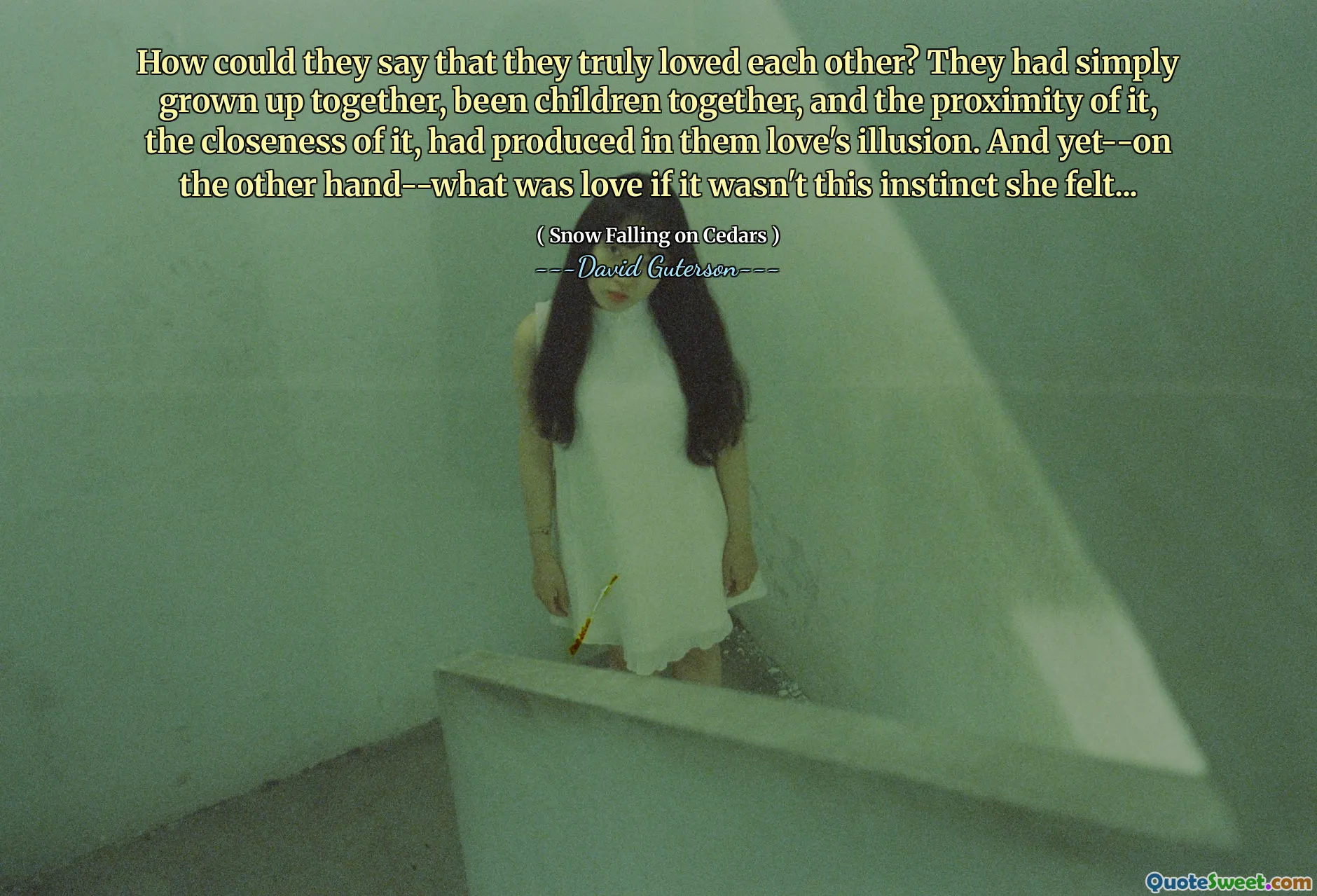
How could they say that they truly loved each other? They had simply grown up together, been children together, and the proximity of it, the closeness of it, had produced in them love's illusion. And yet--on the other hand--what was love if it wasn't this instinct she felt...
This excerpt explores the complex nature of love and its origins, challenging simple notions of genuine emotional connection. It highlights the idea that familiarity and proximity—growing up together and sharing childhood experiences—can foster a sense of love that might be mistaken for true passion or deep connection. The passage suggests that such love might be more about comfort, routine, or instinct than the profound feelings that often accompany romantic involvement. The phrase 'love's illusion' points to a potential misunderstanding or idealization of what love actually entails. Interestingly, the narrator reflects on the contrast between this perceived love and the innate, instinctual feelings that she recognizes as genuine. This poses a philosophical question: is the love built on shared history inferior or perhaps just different from love rooted in inner instinct? It prompts us to consider the ways in which relationships are constructed—whether through authentic emotion or social and psychological conditioning. The idea underscores the importance of self-awareness in love; understanding whether our feelings are genuine or simply a product of familiarity can influence how we approach relationships. It also raises awareness about the danger of equating comfort with love, or mistaking routine for authentic emotional depth. Ultimately, it invites humility and introspection on how love is perceived, felt, and understood, hinting that perhaps true love is intertwined with instinct, a natural, instinctive pull rather than just shared history or external factors.
---book: (Snow Falling on Cedars) ---author: 'David Guterson---'.






